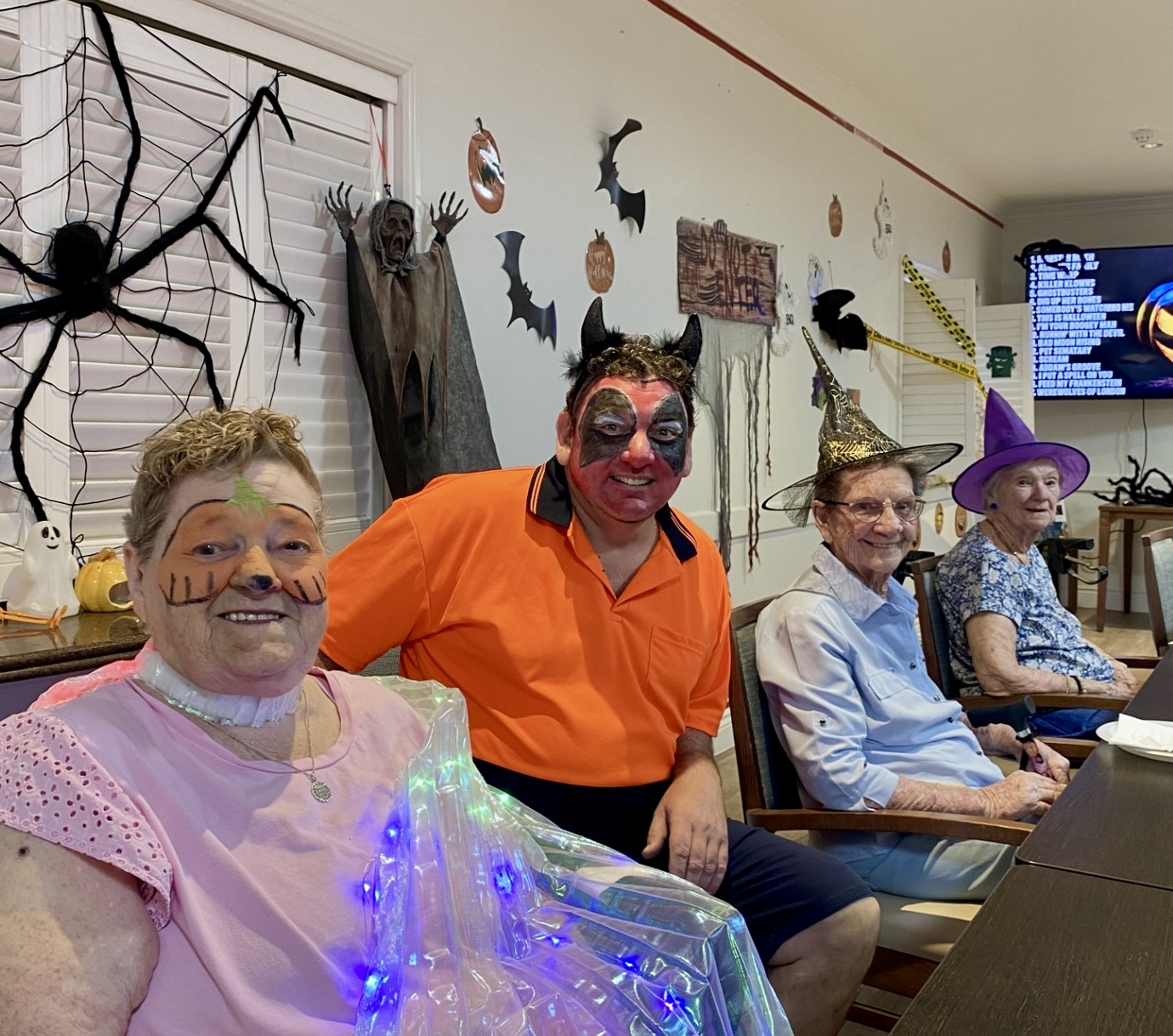
Caring for a parent with dementia can be a challenging and emotional experience. As the disease progresses, the demands on those caring for them can become overwhelming.
It’s important to recognise when it’s time to seek additional support for both you as a caregiver and your parent or loved one with dementia. Let’s take a closer look at the stresses of caregiving, signs that it may be time to consider Residential Aged Care, and how Aged Care Residences like TriCare can help.
The stress of caring for a parent or loved one with dementia
Caring for a parent or loved one with dementia can take a significant toll on your physical and emotional health. The constant supervision, managing unpredictable behaviours, and the emotional strain of watching a loved one’s cognitive decline can lead to burnout and sometimes anxiety or depression.
We often see caregivers experiencing:
- Physical exhaustion: The demands of providing constant care can be physically draining. Tasks such as helping with mobility, managing medications, and ensuring safety can lead to chronic fatigue and physical stress.
- Emotional stress: The emotional burden of seeing a parent suffer and the isolation that often accompanies caregiving can be overwhelming. You may experience feelings of sadness, frustration, and helplessness as they watch their loved one’s condition deteriorate.
- Financial strain: Managing the cost of medical care, therapies, and potential home modifications can be financially challenging too. You might need to reduce work hours or even leave your job to provide full-time care, putting further pressure on your finances.
Signs dementia might be getting too much to handle alone
Recognising when caregiving is becoming too much is important for both your wellbeing and that of your parent. Signs that it may be time to consider additional support include:
- Increased agitation or aggression: If your loved one is becoming more difficult to manage due to increased agitation or aggressive behaviour.
- Physical safety concerns: When the safety of your loved one is at risk due to wandering, falls, or inability to manage daily tasks.
- Caregiver burnout: If you are experiencing chronic stress, fatigue, or health issues related to caregiving responsibilities.

How Permanent Aged Care can help
Permanent Aged Care provides a structured and supportive environment tailored to the needs of people living with dementia. Facilities like TriCare offer a comprehensive range of services designed to enhance the quality of life for residents and alleviate the burden on their caregivers.
This includes:
- Personalised care plans: At TriCare, each resident receives individualised attention through personalised care plans. These plans are developed to address the unique needs, interests, and challenges of each person, ensuring they receive the best possible care.
- 24/7 nursing care: Continuous medical support is available around the clock. Our team of registered nurses provides constant care and monitoring, ensuring that any health issues are promptly addressed, giving families peace of mind.
- Safe and secure environment: TriCare’s secure units are specifically designed for individuals with dementia who may wander, become confused, or exhibit challenging behaviours. These units allow residents to move freely within a safe and secure area that includes lounges, dining areas, and gardens, promoting a sense of independence while ensuring their safety.
- Comprehensive dementia care: TriCare offers specialised memory support that includes a range of services such as physiotherapy, nutritional support, targeted assistance with therapy and dietary adjustments, and support with daily tasks. Our goal is to promote familiarity, comfort, and independence for our residents.
- Engaging lifestyle programs: We provide a variety of engaging activities designed to encourage social interaction and independence. These programs are tailored to the interests and abilities of each resident, helping to enhance their quality of life and overall wellbeing.
- Allied health services: In addition to nursing care, residents have access to allied health services, including physiotherapy and nutritional support. This holistic approach ensures that all aspects of a resident’s health and well-being are addressed.
- Support with daily tasks: Our staff assists residents with daily tasks, ensuring they are comfortable and able to maintain as much independence as possible. This support helps residents feel secure and well-cared-for in their new environment.
You can ‘try before you buy’ with Respite Care
Respite care allows you to take a break while your parent or loved one receives temporary care in a secure residential facility.
This option provides several significant benefits:
- A chance to evaluate: Respite Care offers an invaluable opportunity to see first-hand how well a facility meets your loved one’s needs. You can observe the quality of care, the interactions between staff and residents, and the overall environment. This experience can help you to make an informed decision about longer term care.
- Caregiver relief: Providing care for a loved one with dementia is demanding and can lead to caregiver burnout. Respite care gives caregivers much-needed time to rest and recharge, reducing the risk of physical and emotional exhaustion. This break can improve your overall well-being, allowing you to return to caregiving duties with renewed energy and focus.
- Transition ease: Introducing your loved one to a Residential Aged Care facility through Respite Care can make the transition to permanent care smoother if you decide to go down that path. Your parent will have the opportunity to become familiar with the new environment, routines, and staff, which can reduce anxiety and resistance to change.

The difference it can make to your life
Transitioning to Residential Aged Care can significantly improve the quality of life for the caregiver and your parent.
A summary of the benefits of dementia care include:
- Reduced stress: Moving your loved one to a Residential Aged Care facility alleviates the constant worry and stress of managing daily caregiving tasks. Knowing that your loved one is in a safe, supportive environment with professional care can bring immense peace of mind.
- Improved health: With reduced caregiving responsibilities, caregivers can focus on their own health and wellbeing. This shift can lead to better physical and mental health, as you’ll have more time to attend to your own needs and pursue personal interests.
- Enhanced wellbeing: Residential Aged Care facilities provide a supportive environment where your parent receives professional care and social interaction. Engaging in activities and building relationships with other residents can improve their quality of life and overall wellbeing.
With TriCare, your parent gets the best of care
At TriCare, we understand the complexities of dementia care. Our Residential Memory Support Care offers comprehensive and compassionate services in a safe and nurturing environment, including:
- Comprehensive Dementia Care: We provide personalised care plans that address the unique needs of each resident, ensuring they receive individualised attention and support.
- Secure units: Our facilities are designed to prevent wandering and ensure the safety of residents. The secure units allow residents to move freely within a safe area, promoting independence while maintaining security.
- Holistic support: TriCare offers 24/7 nursing care, allied health services such as physiotherapy and nutritional support, and engaging lifestyle programs that encourage social interaction and independence.
- Experienced team: With over 55 years of experience in providing specialised Aged Care, our dedicated team is here to support you and your loved one through every step of the transition. Our compassionate staff is committed to enhancing the well-being and quality of life for all residents.
Choosing Residential Aged Care is a significant decision, but with the right support and information, you can ensure your loved one receives the best possible care. For more information or to discuss your needs, contact TriCare at 1300 874 2273 or click on the link below.




